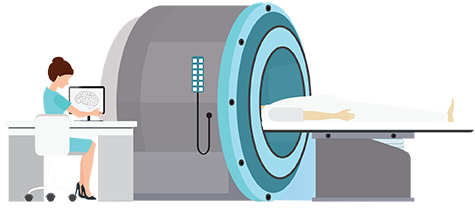

Radiologic technologists are skilled at taking internal images of specific areas of the body, which can enable a physician to determine whether there is an illness, injury or underlying condition present and what the best course of action might be. Radiology techs may have many responsibilities on the job, which can vary from maintaining different types of imaging equipment and tools to keeping details in patient records to working as part of a larger healthcare team.
They are often trained in the use of X-ray imaging, but may know how to use computed tomography (CT) or magnetic resonance imaging (MRI) as well. They can also specialize and work in areas such as mammography or sonography. In addition to being a radiologic technologist, career options in the subject may include:
Radiologic technology programs in Virginia offer educational options that may include postsecondary certificates, associate degrees and bachelor’s degrees. These are some of the institutions in Virginia that offer such programs, according to the National Center for Education Statistics.
The steps to becoming a radiologic technologist are relatively straightforward in most places, including Virginia. As with many health care fields, radiologic technology requires some education beyond high school, and potentially a state license. Here’s where to start:
These are the average annual salaries for different jobs in the radiology field in Virginia, according to data from the BLS.
| Career | Total Employment | Annual Mean Wage |
|---|---|---|
| Cardiovascular Technologists and Technicians | 1,750 | 61,730 |
| Diagnostic Medical Sonographers | 1,670 | 70,960 |
| Magnetic Resonance Imaging Technologists | 790 | 68,070 |
| Nuclear Medicine Technologists | 650 | 72,280 |
| Radiologic Technologists | 4,880 | 59,370 |